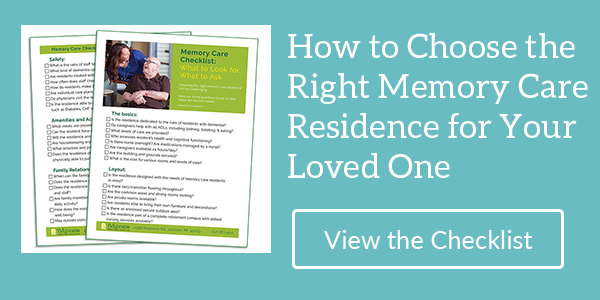The onset of memory loss may at first bring about small changes in a loved one’s behavior, but over time, these changes become more pronounced. As memory is challenged, seniors begin to fail at completing daily routines, including regular and effective dental hygiene. In fact, several studies have linked poor dental hygiene to dementia both as a cause and a result. For seniors in memory care, dental hygiene is essential to overall health and well-being and should be an integrated part of daily care. Here are factors to consider when managing dental hygiene for seniors in memory care.
Medications and the mouth
Many medications can have negative effects on oral health. One of the most common is dry mouth, which can be caused by both prescription and over-the-counter drugs. Dry mouth occurs when saliva production slows. Because saliva is essential to a healthy mouth, and to our ability to swallow and digest food, less saliva can mean a lower ability to fight infections and an increase in dental problems like tooth decay, gingivitis and thrush. Another compounding factor is that seniors in memory care often forget to drink enough water, so that dehydration can make the problem worse.
Other medication impacts include mucositis (tissue inflammation) from chemotherapy; swollen gums from medications for seizures, immune disorders and blood pressure; and ulcers from chemotherapy as well as common drugs like aspirin and antibiotics.
To best avoid these possibilities, always discuss prescription side effects with the senior’s physician, read enclosed drug information on all medications, and be sure to inform the senior’s dentist of all medications so they can recommend or prescribe treatments to counter negative effects before they become problems.
Denture oversight
According to statista.com, “41.23 million Americans used dentures in 2019.” If your senior in memory care is one of them, keep in mind that dentures can pose a number of challenges from keeping them clean to maintaining a good fit to even remembering where they put them the night before.
One common denture-related problem is stomatitis or a sore mouth caused by inflammation that can occur anywhere in the mouth. Seniors with ill-fitting dentures or other problems may not be able to chew well and may avoid eating or may not want to wear their dentures at all. If a senior is experiencing denture discomfort, it’s time to see the dentist to find out why and seek treatment.
If all is well, dentures should be cleaned every day with a soft denture brush and warm (not hot) water, and rinsed after each meal. It is also essential to brush the senior’s palate, gums and cheeks before inserting and after removing dentures, and to make sure all denture fixative has been removed from the mouth. For more about good denture care, check out “Denture Care Tips for Family Caregivers – A Key to Senior Health,” from seniorcarecorner.com.
Establish a flexible routine
Memory care patients often benefit from regular routines and keeping one for dental hygiene can make it much easier, especially when a senior can no longer help themselves. Sometimes, however, dementia patients will need a little flexibility, so the routine does not become something they try to avoid. Here are tips from the Alzheimer’s Association and the Family Care Giver Alliance to guide the routine for care givers:
- Provide step-by-step instructions instead of just telling them to brush their teeth. Seniors with dementia may not only forget to brush, they may forget how to brush, so having simple instructions available can help.
- Set an example by showing them how you brush. Be prepared to take a hands-on approach if they are not able to manage it by themselves.
- Perform the routine at least twice a day, including after the last meal and following evening liquid medications. Be sure to include all areas of the mouth and brush with a soft bristle toothbrush.
- Floss daily to make sure food particles are removed. If flossing becomes a problem, ask the dentist if they can recommend an interdental brush. These tiny brushes work like floss, are especially good at removing plaque and may be easier for dementia patients to use.
- If a senior can no longer handle the routine alone, try moving it from the bathroom to a kitchen table or other place where the senior can sit and enjoy having their teeth brushed.
- If a senior is sitting, brushing and flossing from behind may be more effective for the caregiver.
- When using toothpaste or mouthwash, be sure the patient is not swallowing it. If swallowing becomes a problem, discuss it with their dentist to find alternate options.
- Always be gentle and do not force the routine on the senior. It’s better to wait and try again later, then to make dental hygiene a sore spot for the patient.
- Make and keep regular appointments with a dentist that is familiar with treating seniors with dementia.
Brightside Assisted Living & Memory Care at Ganton’s Countryside offers optimum care and a safe and secure state-of-the-art environment for seniors with dementia. For information about Countryside, please call Margaret Nagel at (517) 206-5000 or download our brochure to learn about our care levels, cost, and amenities.


